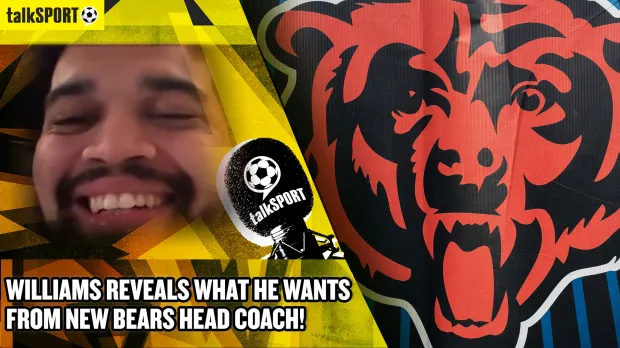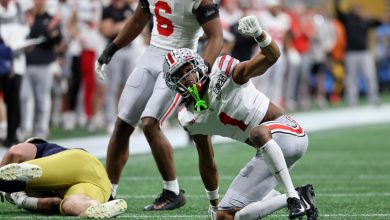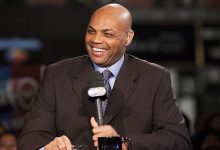“Nasty business”: the Chicago Bears took Ben Johnson from Detroit in order to further hurt Lions supporters.

The NFL is a league of ruthless business decisions, where allegiances can shift in the blink of an eye, and one team’s gain is often another team’s pain. This idea was made all too clear when the Chicago Bears pulled off what many consider a “nasty” move by hiring Ben Johnson—the offensive mastermind behind the Detroit Lions’ offensive revival—as their new head coach. For Lions fans, this is more than just the loss of a talented coach; it feels like an intentional strike against their hopes for the future. The decision to take Johnson, a key architect of the Lions’ rise, has left a bitter taste among Detroit supporters, amplifying the division’s longstanding rivalry.
In this article, we will explore the impact of this “nasty” business decision, focusing on the emotions stirred within Lions supporters, the broader implications for the NFC North, and the possible motivations behind the Bears’ move. We’ll also dive deep into the fierce competition between the Bears and Lions and how this move by Chicago was not only a strategic football decision but also a psychological blow to the Detroit fan base.
The Ben Johnson Effect in Detroit
Before diving into the controversy of his departure, it’s essential to understand just what Ben Johnson brought to the table as the offensive coordinator for the Detroit Lions. When Johnson arrived in Detroit, the Lions offense was nothing short of an afterthought in the league. For years, the Lions had struggled to build a consistently effective offense, relying on Matthew Stafford and, later, Jared Goff, without truly maximizing their talents. There was no balance, and there was certainly no identity.
That all changed when Johnson took over as offensive coordinator. Under his leadership, the Lions’ offense began to flourish, with Goff experiencing a career resurgence. Johnson’s offensive schemes highlighted creativity, adaptability, and a balanced approach. His ability to adapt his play calling to the strengths of his players, especially Goff and a burgeoning offense that included wide receivers like Amon-Ra St. Brown and running back Jamaal Williams, was a key reason for Detroit’s improved performance. The offense became one of the most dangerous and explosive units in the NFC, and Johnson’s work was credited for much of the turnaround.
Lions fans finally saw hope for the future—hope that their team could build a competitive, playoff-worthy offense. And yet, just as things were beginning to click, the Bears made their move. For Detroit fans, it wasn’t just about losing a talented coach; it was about losing someone who had the potential to lead their team back to prominence.
A “Nasty” Business Decision by the Bears
From the outside, the decision by the Chicago Bears to hire Ben Johnson seems like an understandable move. After all, Johnson had helped the Lions’ offense become one of the best in the league, and the Bears—despite having some defensive pedigree—were in desperate need of offensive help. The Bears have been known for their stout defense but have consistently lagged in offensive production. Hiring someone like Johnson, who has proven that he can develop a quarterback (like he did with Goff), seemed like a natural fit for a team struggling to find consistent offensive identity.
However, this decision goes beyond pure football strategy. The hire is a psychological maneuver—one that stings deeply for Lions supporters. For years, Chicago has been a divisional rival of Detroit, and over the decades, the rivalry has been fueled by a shared history of failure and frustration. The Bears and Lions have often found themselves at opposite ends of the NFC North standings, but this rivalry, particularly in the last few years, has seen a shift toward Detroit’s upward trajectory. With the Lions building a potent offense and a team that was starting to look dangerous, the Bears’ decision to hire Johnson feels like more than just a tactical choice—it feels like a deliberate blow to Detroit’s chances.
In the minds of many Lions fans, the Bears weren’t just improving their team; they were taking away a key piece of Detroit’s future. It’s one thing for a coach to leave for a new opportunity, but for Johnson to go to a division rival with the express purpose of helping that rival succeed? That feels like a calculated move to hurt the Lions on multiple levels. The loss isn’t just a matter of personnel—it’s a symbolic attack. Detroit fans see it as the Bears coming in and taking away the very coach who had restored hope and belief in their team’s future.
The Psychological Impact on Detroit Fans
The reaction among Lions fans to Ben Johnson’s departure is understandably emotional. The connection between a fanbase and their team’s success is built on a shared belief in the players, coaches, and management who lead the team. When things are going well, fans feel a sense of pride and optimism. But when a key figure like Johnson leaves for a divisional rival, that optimism quickly turns to bitterness and frustration.
Lions fans had invested emotionally in Johnson’s vision for the team. They had witnessed firsthand the growth of the offense under his tutelage, and they began to believe that the future was bright. Johnson wasn’t just a coordinator; he was a symbol of change, a man who had breathed new life into a long-struggling franchise. His departure feels like a betrayal, not just to the team, but to the entire fanbase. Chicago’s decision to hire Johnson may have been motivated by football strategy, but for many Detroit supporters, it feels like a cheap shot.
To make matters worse, Johnson’s hire is not just a business move for the Bears—it’s a psychological maneuver that plays into the intense rivalry between the two teams. The Bears’ decision to take Johnson, a coach who was helping Detroit’s offense take off, is seen as an intentional effort to destabilize the Lions’ progress. The mere thought that a divisional opponent could actively target and steal away a key figure is a harsh reality for fans to accept.
The Chicago Bears and the NFC North Rivalry
The rivalry between the Chicago Bears and Detroit Lions has been defined by decades of competition, with both teams often jostling for supremacy in the NFC North. Historically, the Bears have had the upper hand in the rivalry, with more championships and greater overall success. But in recent years, the Lions have slowly started to rebuild, with a promising young roster and an offense that seemed ready to challenge the league’s best.
Johnson’s departure has deepened this rivalry, and it has given the Bears an edge that will only increase the tension between the two franchises. Chicago has long prided itself on its defense, but the hiring of Johnson signals that the team is now fully committed to building a balanced, dynamic roster—one that can compete not only on defense but also on offense. This move, combined with the potential of young players like Justin Fields, has the Bears in position to be a serious contender in the NFC North for years to come.
For the Lions, it’s not just about rebuilding a roster; it’s about facing a well-coached and well-rounded division rival that now has a potential edge on both sides of the ball. Losing Johnson is a blow, but it’s also a reminder that the NFC North is a battleground—one where teams are constantly looking for ways to outdo each other.
The Business of Football: Is This What the NFL Is About?
While the NFL is, at its core, a business—where teams are constantly looking to improve and gain an edge—there’s something about the nature of this move that feels particularly cold. In many ways, the business side of football has always been a harsh reality. Coaches leave for better opportunities, players get traded, and teams are always on the lookout for the next big thing. But there’s something about the Bears’ move that feels less like a natural part of the business and more like a deliberate attempt to wound a divisional rival.
In the cold, calculated world of professional football, every decision is made with an eye toward the future. The Bears clearly see Johnson as a key to building a championship-caliber team, and that may very well be the case. But the move also serves as a reminder of the ruthless, no-holds-barred nature of the NFL. The Bears have taken something that was once a Detroit treasure and moved it to Chicago, and in doing so, they’ve made the rivalry between the two teams even more intense.
A “Nasty” Blow to Lions Fans
For Detroit Lions fans, the hiring of Ben Johnson by the Chicago Bears is more than just a football decision—it’s a personal affront. It feels like a calculated strike, a move designed to hurt not just the team but the very fanbase that had been so invested in Johnson’s work. While the business side of the NFL is often ruthless, this move feels particularly “nasty” because it wasn’t just about acquiring talent—it was about stealing a coach from a team that had started to find hope.
For Bears fans, this is a victory, a strategic move that could shape the future of the NFC North. But for Lions fans, it’s a painful reminder that in the NFL, nothing is guaranteed, and rivals are always looking for ways to knock you down. The rivalry between the Bears and Lions has always been intense, but this move by Chicago has taken things to a whole new level, ensuring that the next chapter of this historic rivalry will be as heated as ever.









